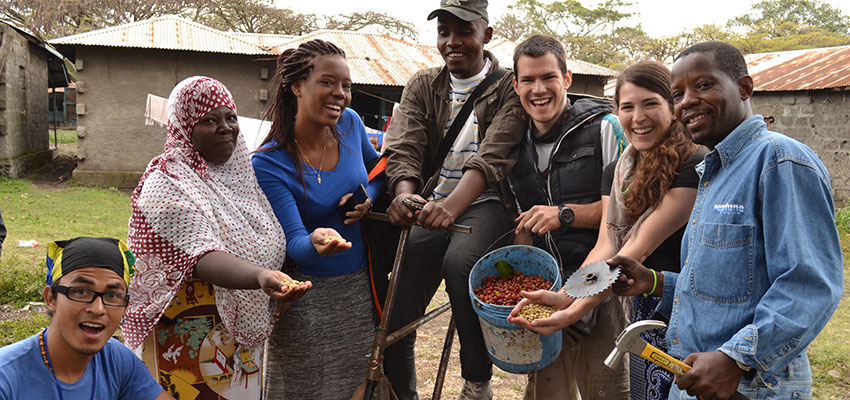
Participatory Design is a process that engages the individuals who are affected by the challenges and will benefit from the resulting innovation
Innovation doesn’t just generate profits—it can also make the world a better place by addressing some of our most pressing humanitarian challenges. This course delves into an evidence-based, innovation-driven, problem-solving approach called Participatory Design.
Pioneered by MIT D-Lab, Participatory Design is a process that engages the individuals who are affected by the challenges and will benefit from the resulting innovation. In this five-day live virtual course, nonprofit and corporate leaders will acquire essential frameworks and fundamental tools and learn how to apply them to their own mission.
Course Schedule (2021 Live Virtual Version)
This course was designed as a complementary program to MIT D-Lab's Applied Inclusive Business: Scaling Technology in Low-Income Markets.
Earn a Professional Certificate in Innovation and Technology
This course is offered through MIT Professional Education and may be taken individually or as a core course for the Professional Certificate Program in Innovation and Technology.
Dates: June 7-11, 2021 (9 am-12:30 pm EST)
Course Length: 5 half-days, live virtual via Zoom
Course Fee: $2,900 (Early Bird Registration $2,600 before Mar. 1)
CEUs: 2.5
Register: Here
Participant Takeaways
After this course, participants will be able to:
- Define inclusive innovation and its components in the context of global development
- Distinguish between the three types of Participatory Design and the contexts in which each may be most useful
- Recognize and mitigate the power dynamics and barriers that may impact the innovation process- especially in the virtual environment
- Apply frameworks and tools aimed at facilitating the Participatory Design process among diverse stakeholders
- Identify and understand the actors and factors that enable and inclusive innovation ecosystem
- Connect with like-minded organizations who use Participatory Design in their work
- Discover how to partner with MIT on inclusive innovation opportunities
Key Frameworks
Participants will leave the course with a collection of frameworks that enable inclusive innovation processes, including:
- Inclusive Innovation Framework
- Participatory Design Process Framework
- Participation Index
- Lean Research Framework
- Inclusive Problem Framing Methods
- Local Innovation Ecosystem Framework
Who Should Attend
This course is particularly well suited to professionals working in international development, community organizing, or diplomacy, poverty- and hunger-related issues, corporate social responsibility, grant-making and philanthropy, global health, government service, social entrepreneurship, technology development, STEM education, and higher education.
Attendees often include:
- Directors and Managers of Partnerships, Strategy, Programs, New Business Development, Training, Research, Outreach and Communications, Monitoring and Evaluation, Product Development, Finance and Operations
- Engineers
- Researchers
Live Virtual Program Outline
This course meets virtually via Zoom platform 9am-12:30pm EST Monday through Fridya, with a few optional virtual networking events throughout the week.
MIT D-Lab faculty, instructors, and program staff bring global perspectives and hands-on experience to this new course, which draws on real-life case studies derived from Participatory Design initiatives around the world. In addition to case studies, sessions will have a mix of research, dynamic scenarios and exercises, field trips, group discussions, co-creative sessions, themed games, and networking opportunities. Because of the emphasis on experiential learning, all sessions have roughly a 1:2 ratio of lectures to virtual group-based activities.
During the course, we will work with a virtual collaboration platform, Mural, and will offer a 1 hour Mural tutorial on June 1 at 10am EST to prepare participants for the course.
Instructors and guest lecturers
In addition to MIT D-Lab Founding Director Amy Smith and Faculty Academic Director Maria Yang, the course will feature the following:
- Amanda Epting, MIT D-Lab Inclusive Business Manager
- Elizabeth Hoffecker, MIT D-Lab Research Scientist, Local Innovation and Development
- Kendra Leith, MIT D-Lab Associate Director for Research
Course curator: Sher Vogel, MIT D-Lab Global Trainings Manager
For more information and to register
Contact
Sher Vogel, MIT D-Lab Global Trainings Manager

